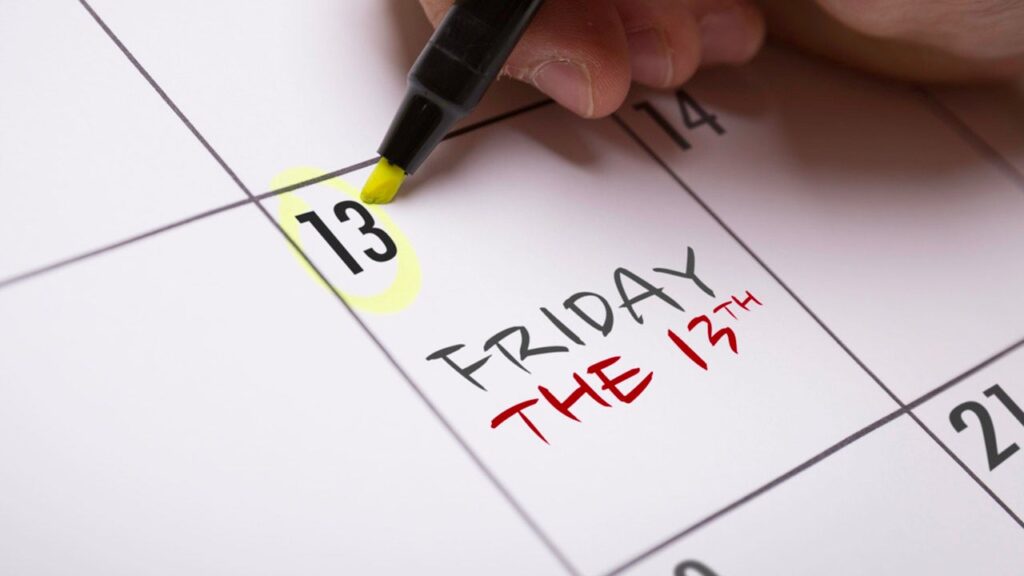The Mystique of Friday the 13th: A Cultural Examination
Friday the 13th has been steeped in superstition and folklore across various cultures globally, with many deeming it an ill-fated day. The combination of the weekday Friday and the number 13 conjures tales of bad luck, misfortune, and eerie occurrences, leading to a plethora of beliefs and rituals aimed at dispelling any negativity associated with this day. To understand this phenomenon, it is essential to delve into the various dimensions that contribute to the perception of Friday the 13th, including biblical roots, popular culture references, notable historical events, and the notable psychological effects of these beliefs.
A significant aspect of the superstition surrounding Friday the 13th is its biblical reference, particularly evident in John Chapter 13. This chapter narrates the account of the Last Supper, where Jesus dined with His Twelve Apostles, with Judas Iscariot being the 13th guest to arrive. This betrayal by Judas, who handed Jesus over to the authorities, adds a layer of intrigue and dread to the day, as it is believed that Christ was ultimately crucified on a Friday. This connection between the number 13 and betrayal, encapsulated in a sacred narrative, sets a tone of ominous significance that influences perceptions today.
In contrast to the ominous associations of Friday the 13th, pop culture offers a more whimsical or even empowering interpretation of the number 13. A notable example is the singer Taylor Swift, born on December 13, 1989. Swift famously embraces the number, publicly declaring it as her lucky charm. Her experiences—like her first album going gold in just 13 weeks and her first number one single beginning with a 13-second intro—serve as a testament to her view of the digit. During various award ceremonies, she noted that she was often seated in the 13th row or section, adding to her positive narrative surrounding the number. This personal mythology surrounding the number 13 contrasts sharply with the prevailing social perception of Friday the 13th as unlucky.
The film industry, particularly through the "Friday the 13th" franchise, has capitalized on this superstition. Since the first movie debuted in 1980, audiences have been gripped by the terrifying persona of Jason Voorhees, a masked killer whose mythical reign of terror has resulted in twelve sequels, thereby solidifying the date’s association with horror and violence. The franchise, including crossovers such as "Freddy vs. Jason," marks Friday the 13th as a cultural phenomenon steeped in the realities of cinematic horror.
However, the reverberations of this superstitious fear extend beyond cultural narratives into tangible financial implications. Studies suggest that approximately 10% of the U.S. population suffers from triskaidekaphobia, the fear of the number 13, which escalates during the curse-laden Friday the 13th. Phobia expert Donald Dossey estimated that between 17 million to 21 million Americans experience paraskevidekatriaphobia—the fear of Friday the 13th—leading to a collective loss of over $800 million annually across various industries. This financial drain largely stems from individuals avoiding travel, canceling events like weddings, and foregoing workplace engagements, a behavior many attribute directly to the day’s reputation.
Historically, some truly significant occurrences have unfolded on Friday the 13th. The year 1128 marked Pope Honorius II’s recognition of the Knights Templar as an "Army of God," intertwining the day with religious legend. Fast forward to April 13, 1970, when the Apollo 13 mission faced a life-threatening oxygen tank explosion, captivating public attention and reaffirming the day’s association with disaster, albeit with a miraculous outcome as all crew members survived. Even darker moments have their roots in Friday the 13th’s historical narrative, such as the bombing of Buckingham Palace during World War II on September 13, 1940, serving to cement both historical and cultural fears into the collective psyche.
In conclusion, Friday the 13th encapsulates a unique blend of myth, fear, and cultural narrative. Whether through religious connotations or a mix of personal anecdotes and cinematic depictions, the day evokes a broad spectrum of emotions and responses. As we navigate through our own interpretations—be it fear-based avoidance or affirmation of luck—the significance of Friday the 13th will likely remain a topic of fascination and intrigue within popular discourse for years to come.



